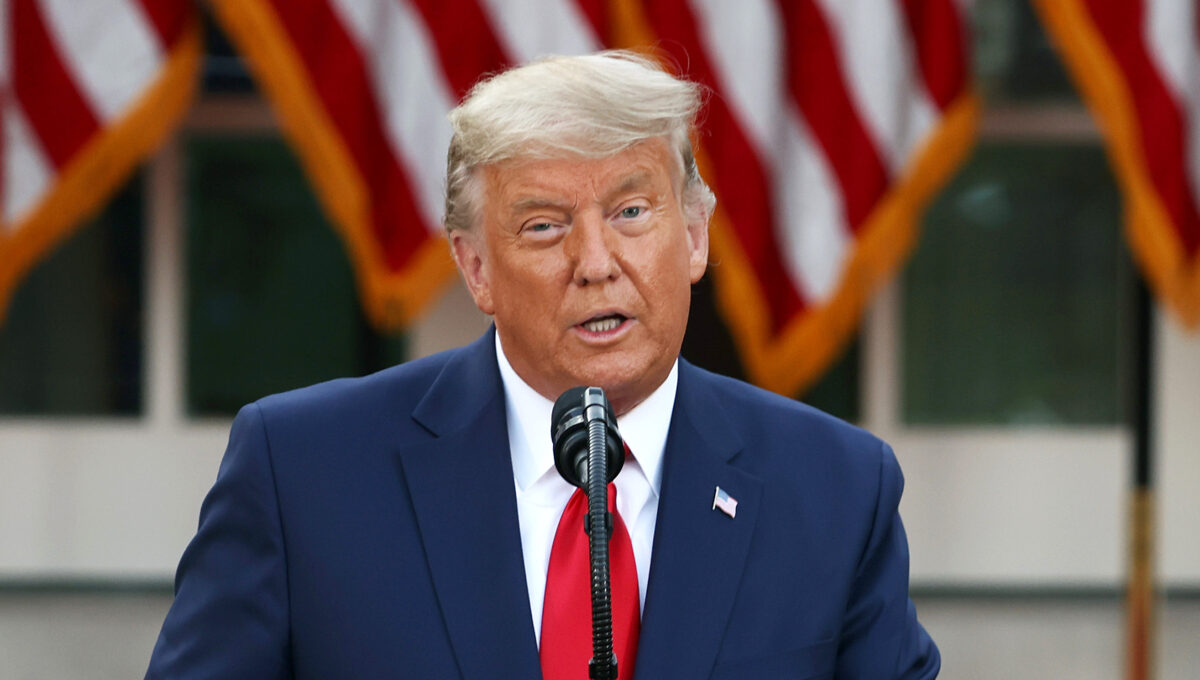Georgia Secretary of State Brad Raffensperger, a Republican, disputed claims made by President Donald Trump that Georgia’s “consent decree” agreement made it impossible to verify voter signatures.
Trump, in a Nov. 14 tweet, criticized the agreement and took aim at Raffensperger, Georgia’s Republican Gov. Brian Kemp, and 2018 gubernatorial candidate Stacey Abrams, a Democrat: “The Consent Decree signed by the Georgia Secretary of State, with the approval of Governor @BrianKempGA, at the urging of @staceyabrams, makes it impossible to check & match signatures on ballots and envelopes, etc.
“They knew they were going to cheat. Must expose real signatures!” Trump added.
Raffensperger told The Associated Press that there is nothing in the consent decree that prevents Georgia election clerks from scrutinizing signatures, adding that not only is it possible to verify signatures, this is required by state law.
When a voter requests an absentee ballot on a paper application, he or she must sign it. Election officials compare that signature to the signature in voter registration files before a ballot is sent to the voter, Raffensperger said. When those ballots are returned, the required signature on the outer envelope is compared to signatures in the voter registration system.
This process was spelled out in detail in the consent decree, a legal settlement that was signed March 6 following a lawsuit by the Democratic Party, which argued that minorities were disproportionately affected when they had their ballots rejected. Among other things, the settlement sets steps for local election officials to notify a voter—by phone, mail, or email—in a timely fashion about problems with a signature.
The changes were made by the state election board.

President Donald Trump speaks about Operation Warp Speed in the Rose Garden at the White House in Washington on Nov. 13, 2020. (Tasos Katopodis/Getty Images)
The consent decree came into focus last week when Georgia attorney L. Lin Wood filed a suit against Raffensperger, claiming the secretary of state “unilaterally, and without the approval or direction of the Georgia General Assembly, changed the process for handling absentee ballots in Georgia, including those cast in the general election.”
Under the U.S. Constitution, only state legislatures and Congress can prescribe the “times, places, and manner of holding elections.”
Wood argued that state officials were unauthorized to change the manner of processing absentee ballots in a way that was contrary with the state election code, and therefore the counting of absentee ballots for the general election in the state was “improper and must not be permitted.”
“To allow otherwise would erode the sacred and basic rights of Georgia citizens under the United States Constitution to participate in and rely upon a free and fair election,” Wood wrote (pdf).
According to the consent decree agreement, county officials are required to form a committee of three people if any one official believes an absentee ballot is defective because the voter’s signature on the ballot envelope doesn’t match the signature on file. If a majority in the committee determines that the signature doesn’t match, it can then “reject” the ballot.
“Under the Litigation Settlement, any determination of a signature mismatch would lead to the cumbersome process described in the settlement, which was not intended by the Georgia Legislature, which authorized those decisions to be made by single election officials,” Wood argued in the lawsuit.


Gwinnett County workers begin a recount of presidential election ballots in Lawrenceville, Georgia, on Nov. 13, 2020. (Megan Varner/Getty Images)
Georgia Deputy Secretary of State Jordan Fuchs called the accusation a “silly baseless claim.”
“Signature match is intact and the General Assembly passed legislation to allow voters who failed to include a signature time to add one,” Fuchs told 11 Alive. “Fulton County only had one rejected ballot in 2018 and now they have thousands. We strengthened signature match, and will continue to do so, period.”
Following state law, Georgia is conducting a hand tally of votes in the presidential race. The process does not include signature verification. Democrat Joe Biden leads Trump by about 14,000 votes in the state.
The head of the Trump campaign’s recount effort in Georgia said the Peach State will not be able to properly certify the results of the 2020 presidential election without verifying the voter signatures on absentee ballots and envelopes.
“The hand count process in Georgia MUST include a review of signatures on absentee ballots and envelopes to verify whether the signature verification process was properly executed,” Rep. Doug Collins (R-Ga.) wrote on Twitter on Saturday.
“This is absolutely CRITICAL,” he added. “Without this, Georgia CANNOT properly certify the election results.”
The Trump campaign has pushed to include signature verification in the process, including in a letter from Collins on Thursday.
“We reiterate our earlier request that this hand count and audit process include review of signatures on absentee ballot applications and envelopes in order to ascertain whether the signature verification process was properly executed by the counties. We believe that a review of the signatures is fundamental to this procedure,” Collins and David Shafer, the state chairman of the Georgia Republican Party, wrote in a Nov. 12 letter (pdf) to Raffensperger.
The Associated Press contributed to this report.






